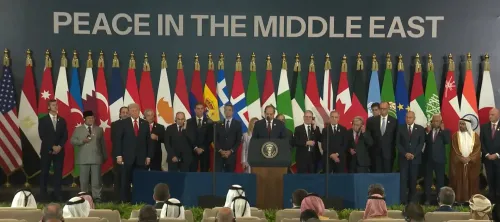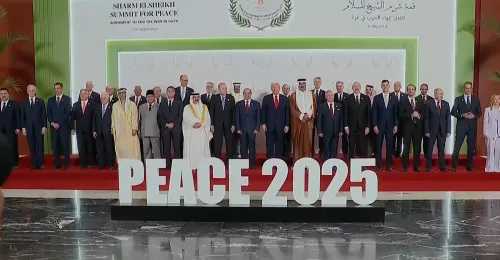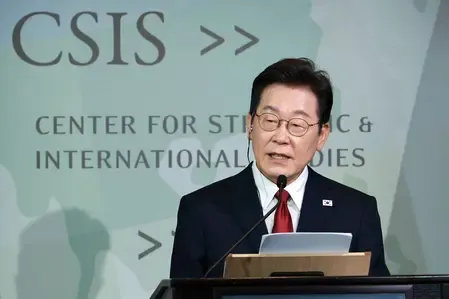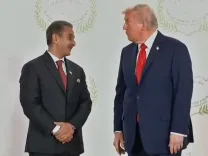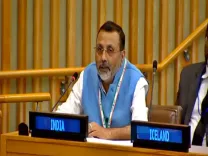What Happened on the 76th Anniversary of the Chinese Invasion of East Turkistan?
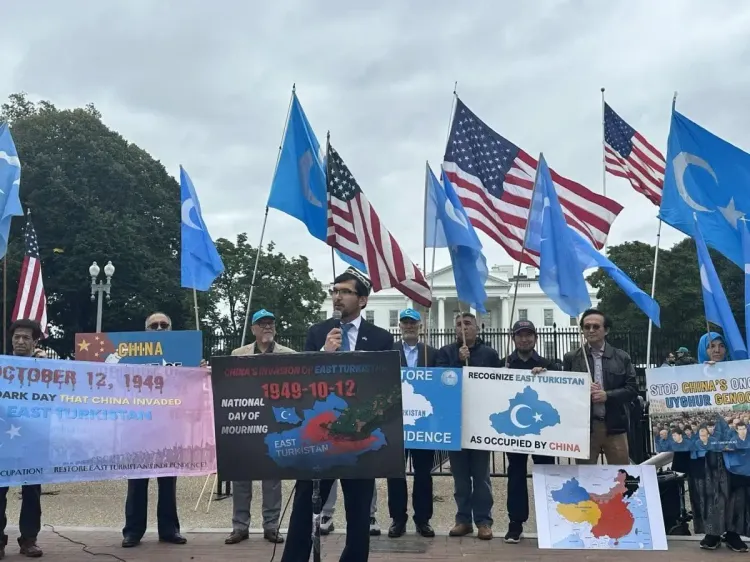
Synopsis
Key Takeaways
- Protests held globally to mark the 76th anniversary of the invasion.
- East Turkistan Government in Exile demands international recognition of East Turkistan's status.
- China's policies in East Turkistan are described as genocide.
- Call for global action against China's oppression.
- Importance of supporting human rights for all oppressed peoples.
Washington, Oct 13 (NationPress) The East Turkistan Government in Exile organized simultaneous protests in Washington, Oslo, and Edmonton to commemorate the 76th anniversary of the Chinese invasion of East Turkistan. They demanded a cessation of China's occupation and genocide, urging the global community to acknowledge East Turkistan as an occupied nation and support its quest for independence and sovereignty.
"On October 12, 1949, merely eleven days post the establishment of the People’s Republic of China, Chinese communist forces launched their invasion of East Turkistan. This act resulted in the dismantling of the independent East Turkistan Republic on December 22, 1949, and sparked a relentless campaign of colonization, occupation, and genocide. East Turkistanis around the globe observe October 12 as a National Day of Mourning. The invasion is recognized as the historical catalyst for China's ongoing genocide against Uyghurs, Kazakhs, Kyrgyz, and other Turkic peoples," stated a proclamation from the East Turkistan Government in Exile (ETGE).
"Since 2014, the Chinese regime has intensified this campaign into a full-scale genocide. Millions have faced imprisonment, forced labor, coercive sterilizations, separation from their children, cultural erasure, and death, including through organ harvesting. China's aggression isn't confined to East Turkistan; it threatens diaspora communities and undermines global security, the rule of law, and democratic values," it further added.
During the rally in front of the White House in Washington, Salih Hudayar, Foreign Minister of the East Turkistan Government in Exile and leader of the East Turkistan National Movement, remarked, "The cause of this ongoing genocide is evident: Chinese occupation and colonization of East Turkistan. There can be no justice, no peace, no freedom while this occupation persists."
At the Norwegian Parliament in Oslo, Qurbanjan Hisamidin, Interior Minister of the East Turkistan Government in Exile and President of the Norway East Turkistan Society, underscored the global obligation, stating, "The struggle of East Turkistan transcends the plight of a single people. It is a critical test for all who uphold freedom, justice, and the moral duty of nations to confront tyranny."
East Turkistan, also known as the Xinjiang Uyghur Autonomous Region of China, is located at the very heart of Asia.
The Uyghurs, an ethnic minority in China, are primarily Turkic-speaking Muslims, officially recognized as one of the 55 ethnic minority groups. They predominantly inhabit the Xinjiang region, which was integrated into the People's Republic of China (PRC) in 1949 during the final phase of China's civil war, a process termed by the Chinese Communist Party as the "peaceful liberation of Xinjiang."
In 1955, under Mao's leadership, the Xinjiang Uyghur Autonomous Region (XUAR) was established as part of the PRC's political integration of regions populated by ethnic minorities, granting them constitutional recognition as autonomous areas.
"However, deviating from their promise of autonomy, the PRC enacted a policy of assimilation, aiming to politically and militarily integrate XUAR, given its strategic geographical location as China's gateway to Russia and Central Asia," Hudayar stated.


